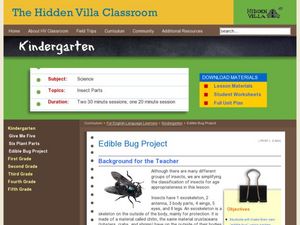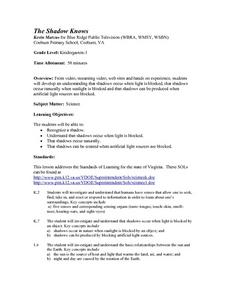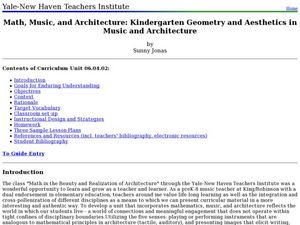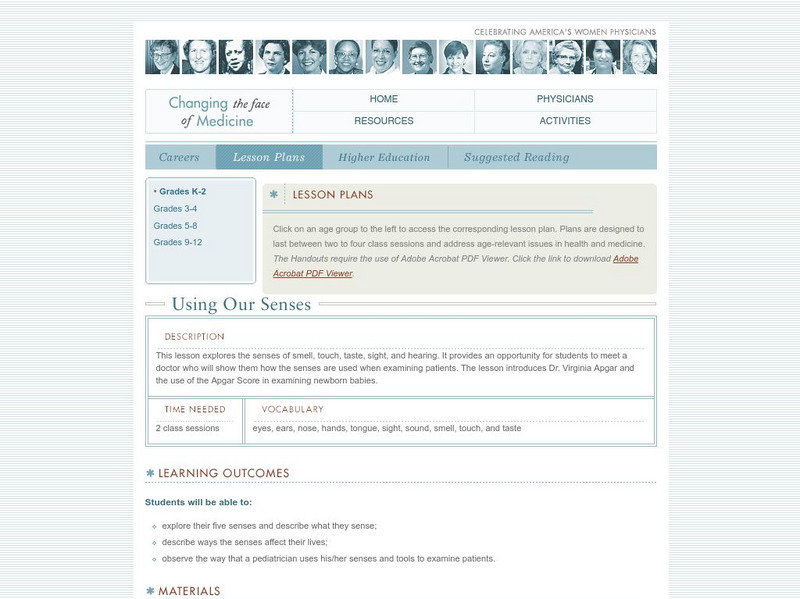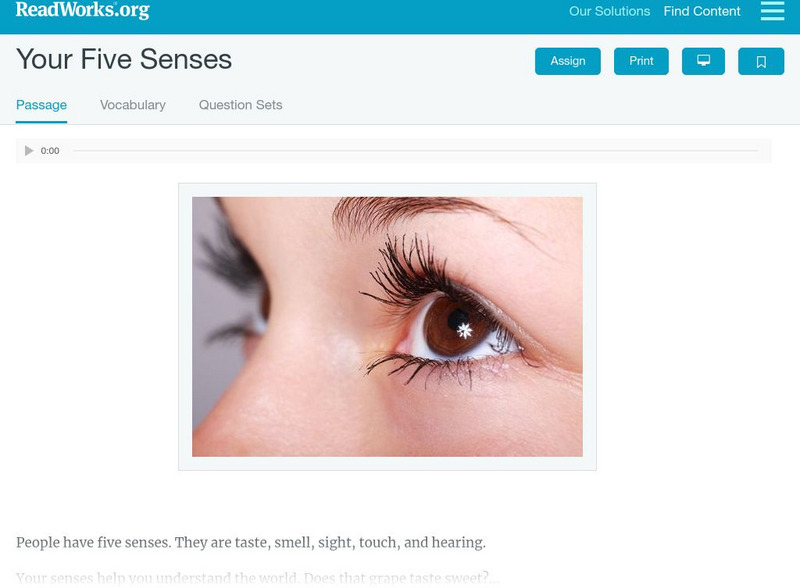Curated OER
Honey Bees and Communication
Did you know that honey bees dance to communicate information? Do you know why bees use hexagons to build their hives? The Honeybee Man, Brilliant Bees, and Show me the Honey provide background information on how honey bees communicate....
Curated OER
Talking Duck
Learners visit a local wetland or WWT centre and record their observations by writing or drawing on the downloadable pupil activity sheet.
Curated OER
An American Scene Painter
Students study the work of American scene painter Charles Burchfield. In this visual arts lesson plan, students research the nature paintings of Burchfield and then paint their own watercolor scenes in his style.
Curated OER
Winter Wonderland Activities
Ideas to help keep the motivational fire in your classroom burning.
Curated OER
Edible Bug Project
Students recognize the characteristics of insects. In this edible bugs lesson, students observe the body parts of an insect. Students create an edible insect using a grape, carrot sticks and sorrel stems and leaves. Students share the...
Curated OER
Human Parts
Very young learners who are studying the human body will use this worksheet to identify certain body parts. A cartoon drawing of a boy is shown, and learners must draw lines matching up words such as arm, tummy, foot, and toes to the...
Curated OER
Being Alive
Young biologists use a activity to fill in the blanks of five sentences. Each one needs a word from a word band at the top of the resource. All of the sentences are about things that are alive, and how we know they are alive. The words...
Curated OER
The Shadow Knows - Creating Shadows
Young learners recognize a shadow and witness how shadows occur when light is blocked. They access streamed video, standard video, and websites in order to engage in their study of how light is naturally blocked to create shadows. An...
Curated OER
Funny Ears
Young scientists get a activity that has a picture of a dog, a donkey, a person, a mouse, a rabbit, and a cat. Each picture has the wrong ears attached to it! Learners must draw lines matching up the ears with the correct recipient. The...
Curated OER
Plant Parts
Little ones identify the parts of a plant and practice following directions at the same time. They color each part of the flowering plant the color indicated on the sheet. Roots are brown, leaves are green, the flower is red, and the...
Curated OER
Math, Music and Architecture: Kindergarten Geometry and Aesthetics in Music and Architecture
Students identify and name different geometrical shapes. In this math instructional activity, students distinguish odd from even numbers. They describe the properties of 2 and 3 dimensional objects.
BioEd Online
Bio Ed Online: The Senses
In the following activities students can learn about the basic characteristics and structures of the brain, skull and sensory system; investigate sight, hearing, smell, taste and touch; and discover how the brain and the senses are...
University of Florida
Florida Museum of Natural History: My Body My Senses
This teacher's guide introduces children to the human body and the five senses and covers the major body parts and what they do. Children also will use their five senses to learn about the world.
E-learning for Kids
E Learning for Kids: Science: Crab Boat: Senses: Five Human Senses
Todd, the crab boat captain uses his five senses to bring the crabs to shore. Can you help him?
National Institutes of Health
National Library of Medicine: Using Our Senses
This lesson plan site delves into the senses of smell, touch, taste, sight, and hearing. Students will be able to describe the ways senses affect their lives and how a pediatrician uses his/her senses to examine patients.
Read Works
Read Works: Your Five Senses by Rachelle Kreisman
[Free Registration/Login Required] This passage explains the five senses: taste, smell, sight, touch, and hearing. A comprehension question set and a vocabulary worksheet are available.
abcteach
Abcteach: Senses Flashcards
[Free Registration/Login Required] Colorful flashcards of the 5 senses with your choice of Arial or D'Nealian lettering.
The Franklin Institute
The Franklin Institute Online: Coming to Our Senses
Help students make "Sense," of their senses by using them in the classroom. Site provides discovery activities students can do on themselves, in their classrooms and around campus. A scavenger hunt is also provided.
Science Education Resource Center at Carleton College
Serc: Backyard Science the Five Senses
Kindergarten students will use their existing outdoor expertise to help them focus on the scientific study of their five senses in stations.
Beacon Learning Center
Beacon Learning Center: Christmas Bear and His Five Senses
Come along with Eric as he teaches Christmas Bear how to use his five senses.
E-learning for Kids
E Learning for Kids: Science: Easter Island: Senses: Observation of Living Familiar Things
Students investigate how the senses are used to make observations about objects and things in the environment.
E-learning for Kids
E Learning for Kids: Science: Bikini Atoll: Senses: Observation of Familiar Materials and Objects
Students use their senses to identify and describe objects.
Other
Senses: Online Word Search Puzzle
Have fun finding words associated with the five senses: smell, taste, touch, hearing, and sight. When finished with the game, rescramble the word search and play again.
PBS
Pbs Kids: Sid the Science Kid: I Sense
Listen carefully. Can you answer Sid's questions about the five senses?






